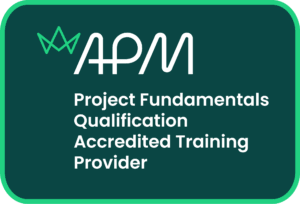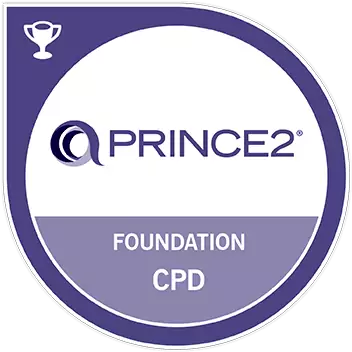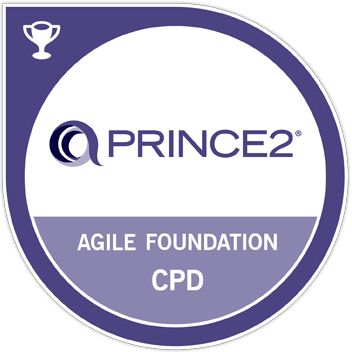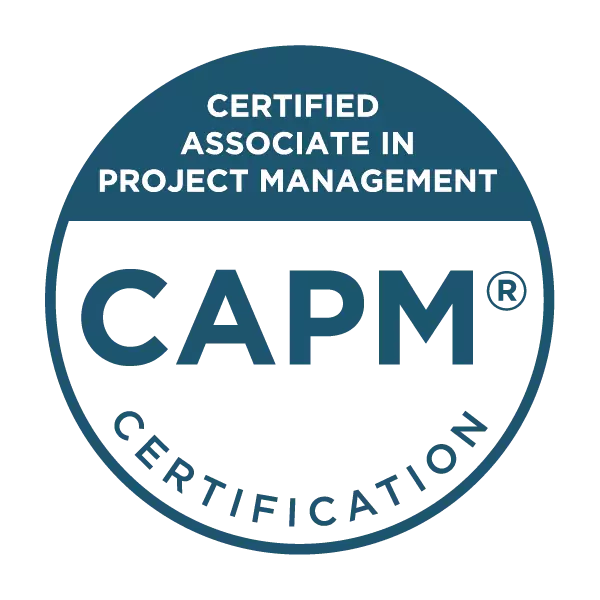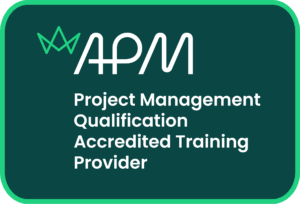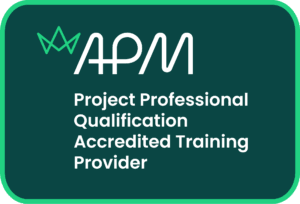Project management qualifications: The definitive guide
We have created a comprehensive guide to the vast range of project management qualifications available. This page will give you all of the information you need about APM, PRINCE2® and PMI qualifications, helping you to navigate through the options and choose the course that works best for you.
APM Project Fundamentals Qualification (PFQ)
For those new to project management.
APM Project Management Qualification (PMQ)
For project managers who want to control projects better.
APM Project Professional Qualification (PPQ)
For experienced project managers who want to advance their career.
APM Chartered Project Professional (ChPP)
For project professionals who want to gain chartered status.
Introduction
If you are involved in projects or project management then you already know that there are many professional qualifications available for people at different levels of experience. Project management is a fast-growing profession in which qualified project managers are much in demand. This demand is expected to grow, and the PMI expects there will be nearly 22 million new jobs by 2027 in project-oriented sectors.
Regardless of your current career stage and existing project management experience a professional project management qualification will distinguish you in the job market and improve your ability to deliver successful projects effectively.
It is well known that qualifications can boost your career prospects and your salary and provide access to new opportunities and professional roles. However, different countries, industries and organisations value specific credentials more highly than others. Some certifications test knowledge, others assess competence or performance; many require pre-existing qualifications and experience. Some certifications, such as PRINCE2®, describe a step-by-step method to deliver projects. Other qualifications, such as those from PMI and APM, are knowledge- and competence-based. So, the decision about which project management certification to choose is not always straightforward.

Training courses that lead to project management qualifications are a significant commitment of time and money. Once you go beyond the foundation level, most involve a substantial amount of reading and preparation before the course. During the course itself, further revision and exam preparation is often necessary. To pass a project management exam and reap the benefits of a recognised credential, candidates will need to choose wisely and prepare thoroughly. In this guide, we have set out most of the current options for you. If you would like to discuss the best option for you, please do get in touch.
The key certification bodies
Association for Project management
The Association for Project Management (APM), based in the UK, is the only chartered body for the project profession. It offers internationally recognised professional project management qualifications that are valued across a wide range of industries and organisations. They primarily focus on UK organisations, with some representation overseas. Projects are carried out using the APM approach in colleges and universities, international engineering and technology companies, government departments and major organisations. These include Admiral Group PLC, Balfour Beatty Plc, Capita IT Professional Services, BAE Systems, BT, GSK, Costain, MoD, Network Rail, Mace, Arcadis, BAA, Shell and Siemens. Click here for a full list.
The APM is the UK member of the International Project Management Association (IPMA), the global professional body for project, programme and portfolio management.
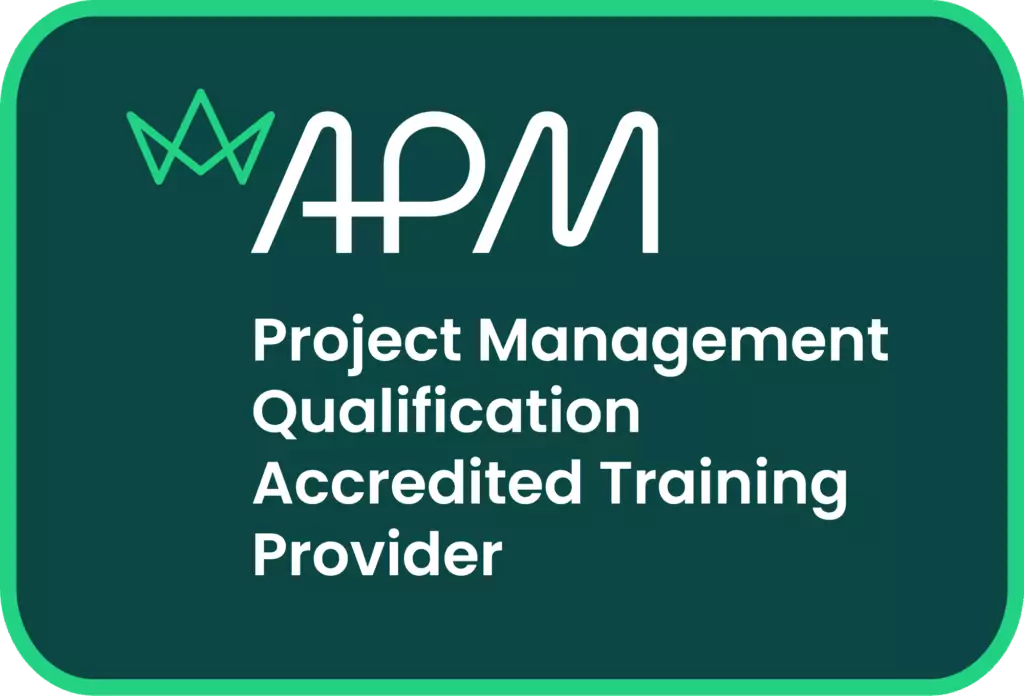
The Project Management Institute

The Project Management Institute (PMI) is a USA-based project management organisation with over 500,000 members around the world. There are more than half a million PMI certification holders worldwide and they work in every industry, from healthcare, telecommunications and finance to IT and construction.
A PMI certification provides:
- An unbiased way of validating your knowledge and professional experience.
- PMI certification is not tied to any one specific methodology, industry or region. A PMI certification can move and adapt with your career.
- Competitive advantage. Many certification holders achieve salary increases, career advancement opportunities and employer recognition.
- It emphasises your commitment to professional growth. By earning and then maintaining a PMI certification, you continue to develop your knowledge, skills and abilities.
- Certifications are developed by practitioners, upheld by rigorous standards, based on ongoing research and always reflect current industry practices.
Axelos
PRINCE2® is a widely recognised approach that offers best practice guidance on project management and a clear road map for the delivery of successful projects. It is used extensively by the UK Government and by private sector organisations in the UK and worldwide.
Since the beginning of 2014, PRINCE2® certifications have been managed by Axelos, a joint venture between the UK Government and Capita.
Essential features of PRINCE2 include:
- A focus on business justification
- A defined structure for the project management team
- A product-based planning approach
- Emphasis on dividing the project into manageable and controllable stages
Flexibility that can be applied at a level appropriate to the project

Step 1 Project Management
Introductory qualifications
While most project management qualifications have pre-requisites, there are introductory courses that enable new project managers, project team members or project support staff to gain a good, basic understanding of why structured project management is needed and how it is implemented.
Key Facts
- APM Project Fundamentals Qualification (APM PFQ)
- PRINCE2® Foundation
- PRINCE2® Agile Foundation
- CAPM
Study Options
- APM Project Fundamentals Qualification (APM PFQ)Classroom
Virtual Training
Distance Learning
e-Learning - PRINCE2® FoundationClassroom
Distance Learning
e-Learning - PRINCE2® Agile FoundationClassroom
Distance Learning
e-Learning - CAPMClassroom
Distance Learning
e-Learning
Course Duration (classroom)
- APM Project Fundamentals Qualification (APM PFQ)2 days
- PRINCE2® Foundation3 days
- PRINCE2® Agile Foundation3 days
- CAPM3 days
Exam Type & Duration
- APM Project Fundamentals Qualification (APM PFQ)1 Hour multiple choice exam – 60 Questions
- PRINCE2® Foundation1 Hour multiple choice exam – 75 Questions
- PRINCE2® Agile Foundation1 Hour multiple choice exam – 50 Questions
- CAPM1 Hour multiple choice exam – 150 Questions
Pre-requisites
- APM Project Fundamentals Qualification (APM PFQ)None
- PRINCE2® FoundationNone
- PRINCE2® Agile FoundationNone
- CAPMNone
Step 2: Knowledge-based project management qualifications
As people progress in their career, they often want a professionally recognised project management qualification. A knowledge-based course traditionally involves 35 hours of classroom study, plus some self-study and an assessment at the end of the course. To pass the test, you need to know theoretical project management principles (usually drawn from a body of knowledge or manual) reasonably well. They vary in required pre-requisites as described below.
Key Facts
- APM Project Fundamentals Qualification (APM PMQ)
- APM PMQ for PRINCE2® Practitioners
- PMP
- PRINCE2® Practitioner
Study Options
- APM Project Fundamentals Qualification (APM PMQ)Classroom
Virtual Training
Distance Learning
e-Learning - APM PMQ for PRINCE2® PractitionersClassroom
Distance Learning
e-Learning - PMPClassroom
Virtual Training
Distance Learning
e-Learning - PRINCE2® PractitionerClassroom
Virtual Training
Distance Learning
e-Learning
Course Duration (classroom)
- APM Project Fundamentals Qualification (APM PMQ)5 days
- APM PMQ for PRINCE2® Practitioners3 days
- PMP5 days
- PRINCE2® Practitioner3 days
Exam Type & Duration
- APM Project Fundamentals Qualification (APM PMQ)3-hour-15-minute written exam. Answer 10 from 16 questions.
- APM PMQ for PRINCE2® Practitioners2-hour written exam. Answer 6 from 10 questions
- PMP3-hour written exam
- PRINCE2® Practitioner2.5-hour multiple choice exam
Pre-requisites
- APM Project Fundamentals Qualification (APM PMQ)2-3 years of project experience
- APM PMQ for PRINCE2® PractitionersCurrent PRINCE2® Practitioner certification
- PMP3-5 years managing projects (dependent on academic qualifications) plus 35 hours of relevant CPD or a CAPM certification.
- PRINCE2® PractitionerPRINCE2® Foundation or equivalent
Step 3: Application-based project management qualifications
At this level you will need to demonstrate that you have and can apply the principles of project management to projects of reasonable complexity. The assessment methods move from knowledge-based exams to interviews, assessment centres and application of skill to scenario-based case studies and interviews.
Key Facts
- APM Project Professional Qualification (APM PPQ)
- PRINCE2® Professional
Study Options
- APM Project Professional Qualification (APM PPQ)Classroom
Distance learning
e-learning - PRINCE2® ProfessionalClassroom
Distance learning
e-learning
Course Duration (classroom)
- APM Project Professional Qualification (APM PPQ)Modular Programme
- PRINCE2® Professional2.5 days
Exam Type & Duration
- APM Project Professional Qualification (APM PPQ)3-hour practical exam plus interview based on a portfolio of your projects
- PRINCE2® ProfessionalAssessment centre with simulated projects and observers
Pre-requisites
- APM Project Professional Qualification (APM PPQ)APM PMQ or equivalent, or evidence of 3-5 years managing non-complex projects
- PRINCE2® ProfessionalYou must be a registered PRINCE2® practitioner
Step 4: Chartered Project Professional
Currently, this is the highest standard for project management professionals. To become an APM Chartered Project Professional (ChPP) you need to demonstrate that you have the competence and capability to deliver complex projects. Currently, this is the only project management standard at this level.
Key Facts
- APM Chartered Project Professional Standard (ChPP)
Study Options
- APM Chartered Project Professional Standard (ChPP)Coaching
Course Duration (classroom)
- APM Chartered Project Professional Standard (ChPP)2 separate 1-day workshops
Exam Type & Duration
- APM Chartered Project Professional Standard (ChPP)Written submission, interview and CPD log. The specific requirements will depend on your existing accreditations (recognised assessments).
Pre-requisites
- APM Chartered Project Professional Standard (ChPP)Hold a recognised assessment for technical knowledge.
OR
Hold a recognised assessment for technical knowledge and professional practice.
OR
No recognised assessment but meet eligibility criteria.
Agile development
The focus of agile project management is on developing solutions incrementally, enabling project teams to react effectively to changing requirements, whilst empowering project personnel and encouraging increased collaboration and ownership.
Many people talk about agile development sitting alongside and complementing a project management approach. For example, PRINCE2® and APM approaches now include agile development techniques.
Key Facts
- APMG International AgilePM®
- PRINCE2® Agile™ Professional
- PMI-ACP® (Agile Certified Practitioner)
Study Options
- APMG International AgilePM®Classroom
e-learning - PRINCE2® Agile™ ProfessionalClassroom
e-learning - PMI-ACP® (Agile Certified Practitioner)Classroom
e-learning
Course Duration (classroom)
- APMG International AgilePM®4 days
- PRINCE2® Agile™ Professional3 days
- PMI-ACP® (Agile Certified Practitioner)3-5 days
Exam Type & Duration
- APMG International AgilePM®Foundation: 40-minute multiple choice exam.
Practitioner: 2.5-hour written exam. - PRINCE2® Agile™ Professional2.5-hour multiple choice exam – 50 questions.
- PMI-ACP® (Agile Certified Practitioner)3-hour multiple choice exam.
Pre-requisites
- APMG International AgilePM®Traditional project management knowledge and/or experience.
- PRINCE2® Agile™ ProfessionalPRINCE2® Foundation or Practitioner, PRINCE2® Agile Foundation, APM PMQ, CAPM, IPMA Level A, B, C, D
- PMI-ACP® (Agile Certified Practitioner)Experience in agile project teams
